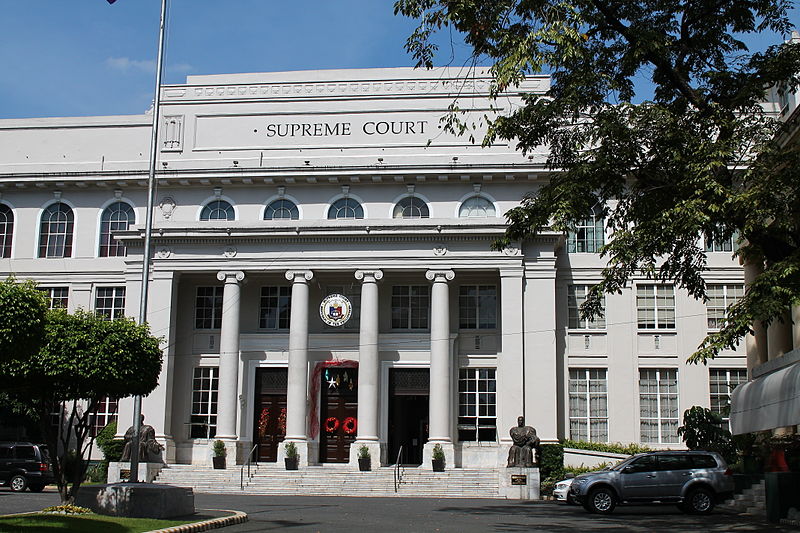Headline
SC junks plea to clarify Congress voting on Cha-cha

Facade of the Supreme Court Building (Photo By Aerous – Own work, CC BY-SA 3.0)
MANILA— The Supreme Court (SC) dismissed the petition filed by a law professor seeking to clear things over conflicting positions of the House of Representatives, the Senate and other stakeholders in connection with the move to amend the 1987 Constitution to pave the way for a federal form of government.
SC spokesman Theodore Te announced the directive was issued following Tuesday’s regular en banc session of the magistrates.
Te said the 15-man High Tribunal was unanimous in dismissing the petition for declaratory relief filed by Arturo de Castro, a professor of Law and Mandatory Continuing Legal Education (MCLE), dean of the College of Criminology and Associate Law Dean and Bar Review director of the University of Manila.
“The Court resolved to dismiss the Petition for Declaratory Relief for lack of jurisdiction under Rule 63, section 1 and also for being effectively a request for Advisory Opinion. Petitioner sought a judgment from the Court on the manner of voting of Congress for purposes of amending the Constitution,” Te said during the press briefing.
The Court held that it has no original jurisdiction over declaratory relief actions as such jurisdiction belongs to the Regional Trial Court.
“Its jurisdiction is limited to appellate review of declaratory relief judgments rendered by the trial courts,” the SC declared.
It also pointed out that the petition effectively sought an advisory opinion from the Court on the manner of voting of Congress in amending the Constitution, which it did not render as its role was to settle actual controversies and not give advisory opinions.
In his 11-page petition for declaratory relief, De Castro asked the high court to answer the question on whether the votes of the Senate and the House of Representatives should be counted separately or jointly to determine the three-fourth majority.
He also cited the conflicting opinions expressed by legal luminaries in the interpretation of Section 1 (1), Article XVII of the 1987 Constitution on Amendments or Revisions.
“The Supreme Court, as the final arbiter of constitutional questions is called upon to resolve the constitutional issue of whether the House of Representatives alone may propose amendments to the Constitution,” he said.
“A final and definitive resolution of the constitutional questions …would diffuse the tension in the nation that would go a long way to keep and maintain stability in the political system in the Philippines,” the petitioner added.
De Castro maintained that the people should “not be denied their sovereign right to consider federalism just because the Senate refuses to cooperate.”
He called it “a clear dereliction of duty for which the senators are accountable to the people in the next elections.”
“If the voting should be counted separately, then the House alone may not proceed to propose revisions to the Constitution without the participation of the Senate,” De Castro said.
“Unless the issue is resolved soon, an impending constitutional crisis looms in the horizon that may lead to another People Power revolution and the establishment of a revolutionary government supported by the people,” De Castro said.
The petition stemmed from the Senate’s refusal to heed the call of the House of Representatives for a Joint Constituent Assembly to propose revision of the Constitution to shift from unitary to federal system of government.
As a result, the House of Representatives decided to go ahead with the proceedings to propose revisions to the Constitution even without the participation of the Senate, and to draft a revised Constitution to be submitted to the people in a plebiscite.
It may be recalled that the Senate and the House of Representatives had been at odds over the issue of Charter change to usher in a federal form of government.
While the House of Representatives wants to convene a joint constitutional assembly to propose amendments to the Constitution, the Senate wants a separate voting on the amendments.





















